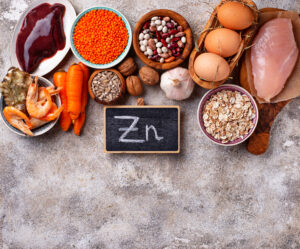Pregnancy Nutrition Guide is a great resource for understanding the dietary needs of a healthy pregnancy, offering trimester-by-trimester meal plans and shopping tips.
A complete guide that addresses essential nutrients like iron, folic acid and iodine is also provided in this book. Several foods should be avoided like raw sprouts and unpasteurized juices while potential risks from deli meats and soft cheeses should also be identified as well as warnings against raw sprouts and unpasteurized juices.
Protein
Protein is one of the key bodybuilding nutrients essential for pregnancy, providing calcium, phosphorous, magnesium and B vitamins as well as folate, iron choline and other essential amino acids.
A balanced pregnancy diet includes whole grains, fruits and vegetables, lean meats and fish as well as low-fat dairy foods to meet protein needs during gestation. If certain foods cause allergies or you’re having trouble meeting protein needs, discuss using high quality protein powder or shake with your healthcare provider – however remember it shouldn’t replace whole food sources!
Carbohydrates
“Eating for two” may suggest that women need to increase their caloric intake. However, it’s essential to maintain a varied and nutritious diet when trying for pregnancy.
Carbs provide energy and are integral for the healthy development of your baby. Choose nutrient-rich carbohydrates from whole grains, fruit and vegetables while limiting empty-calorie foods like sugary beverages and fried snacks.
Certain meats and seafoods, including deli meat, liver products and raw oysters, may contain harmful bacteria or parasites that could endanger an unborn fetus’s development. To minimize your risk of food poisoning, always cook seafood thoroughly for maximum safety.
Fats
Diet is a vital source of energy during gestation. Focus on choosing unsaturated fats like those found in vegetable oils, olive oil and nuts as sources.
Protein is essential to both you and your baby’s development. Aim to consume at least 70 grams per day through lean meats, fish, low-fat dairy and eggs as well as legumes (beans) or tofu products.
Folate is an essential B vitamin that can help your baby avoid serious neurological defects (neural tube defects). Make sure to get adequate amounts by eating fortified cereals, breads and juices containing folate.
Vegetables
Pregnancy increases blood volume, necessitating more protein to build tissue and provide iron. Common sources include chicken, fish, eggs, tofu beans and whole grains as sources for additional proteins needed during gestation.
Eat plenty of vegetables and berries (blueberries, raspberries, goji berries and strawberries) for their abundant source of water, fiber, vitamins, minerals and plant compounds. Try them in smoothies and as part of breakfast cereal.
Avoid raw or undercooked foods such as deli meats, pate and hot dogs (straight from their package). Furthermore, ready-to-eat salad dressings that may contain bacteria like listeria should also be avoided. Folate is an essential B vitamin which can help prevent neural tube defects like spina bifida in newborns; sources include green leafy vegetables, liver extract and fortified breakfast cereals containing folate.
Fruits
Pregnant women require approximately 300 extra calories daily; it is important that most of those come from nutritious sources like fruits, vegetables, whole grains, protein and healthy fats.
Watermelons are an excellent way to stay hydrated and are packed with potassium and folate, among other essential nutrients. Berries offer additional antioxidant protection as well as plenty of Vitamin C – an antioxidant which has been linked with relieving constipation symptoms as well as decreasing low birth weight risk. Folic acid plays an essential role in helping prevent serious birth defects like spina bifida and anencephaly; you can find this essential element in leafy green vegetables, meat products, fortified cereals and some fruits.
Milk
Milk is essential to pregnant women as it provides calcium that’s vital to bone development in babies, while also offering up vitamin D which may prevent osteoporosis in later life.
Low-fat dairy foods like skimmed or 1 percent fat milk, yoghurt and cheese contain less saturated fat. Unpasteurised cheese such as brie can also contain Listeria bacteria that could pose health risks.
Folic acid, essential for the growth and prevention of birth defects, can be obtained from eating leafy green vegetables, orange juice, apricots and fortified cereals.
Meat
Diet and nutrition play an essential role in maintaining a healthy pregnancy and weight gain during gestation. By eating well during gestation, eating will lower the risk of anemia gestational diabetes and preeclampsia complications.
Consume foods from each food group to get all of the nutrition your body requires during gestation. Protein should play an integral part of this diet; make sure poultry, burgers, sausages, whole cuts of lamb beef or pork are cooked thoroughly until steaming all the way through.
Seafood
Pregnant women require extra calories and proteins during gestation to sustain the development of their growing baby, so they should aim to gain an ideal amount of weight within recommended guidelines to avoid complications like varicose veins, backache or fatigue.
Seafood is an excellent source of vitamin D, which works in tandem with calcium to build strong teeth and bones for your baby. In addition, seafood provides omega-3 fatty acids, B vitamins and zinc; try salmon, sardines or canned tuna as options.
Opt for smaller fish like catfish, flounder, sardines and freshwater trout that do not contain high concentrations of mercury-containing chemicals like methylmercury. Also avoid raw or undercooked seafood to limit any possible health hazards.
Drinks
Drinks play an integral part in the prenatal diet. Water and calcium-fortified drinks (such as yoghurt and soya milk drinks) should take precedence over sugary soft drinks, fruit juices and sodas.
Avoid raw and partially cooked meats (such as ham, salami and pate), cold seafood and smoked fish as these may contain listeria bacteria. Furthermore, unpasteurised milk and cheese could contain harmful germs that may contain listeria.
Pregnant mothers should aim to consume a diet rich in lean proteins, whole grains, fruits and vegetables as well as healthy fats throughout their pregnancy to provide themselves with essential vitamins such as iron, protein, calcium, zinc folate vitamin C B vitamins.





